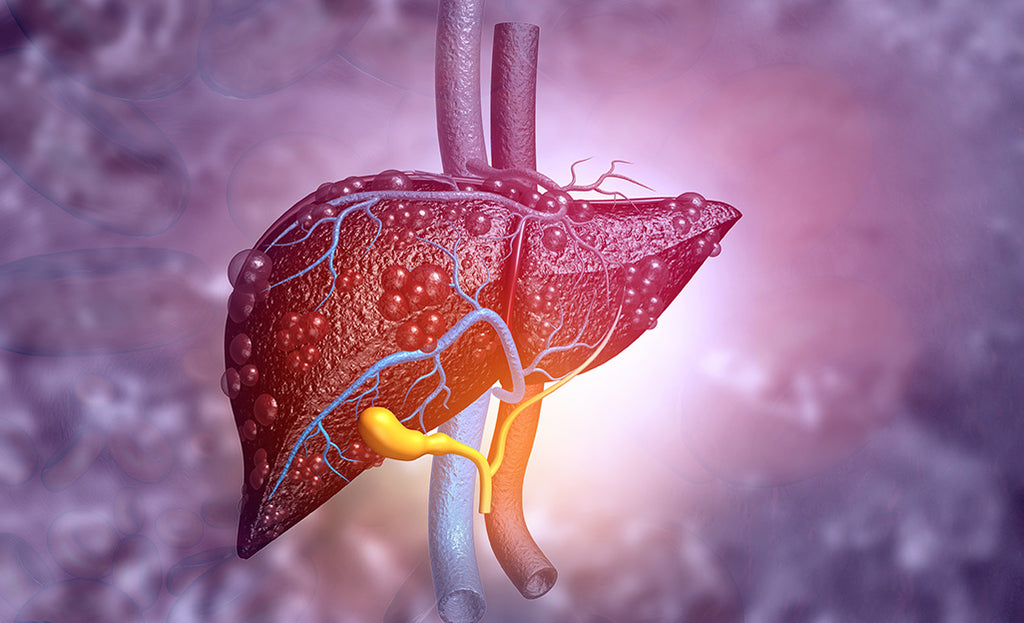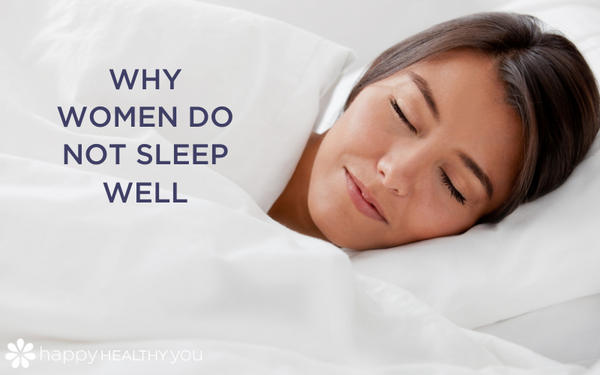
Waking at 3 am? It Could Be Your Liver
Are you constantly waking up nightly at 2 - 3am then spending the next couple of hours tossing and turning, only to find yourself finally dozing off and waking with complete fatigue?
You’re not alone. There are multiple influences on your circadian rhythm (sleep/wake cycle) and it just so happens that your organs have their own autonomously regulated body clocks for daily cleansing. Between 12 - 3am, your molecular clockwork has been traditionally associated with liver detoxification and regulatory processes.
Even more interesting, your body has anatomical hierarchy where the suprachiasmatic nucleus (SCN) within the hypothalamus is the master clock, a timekeeper for organs. This part of the brain regulates the sleep/wake cycle by retinal perceived light and darkness and synchronizes your body organs for detoxification or regulatory mechanisms.

We are engrained with innate biological patterns that dictate our physiology, behaviour, thermal control, blood pressure, cortisol, melatonin, hormones, mental health and cognition. It’s not just humans with these 24 hour cycles; they are ubiquitous in nature and influence plants, animals, bacteria, fungus and even algae.
Research indicates that these clocks are highly sensitive to metabolic cues – meaning eating and liver detoxification patterns play a huge role in your circadian rhythm. Your metabolic and digestive feedback communications are sending signals to the liver where it balances energy and metabolises carbohydrates, fats and proteins. Cholesterol, sex hormones and thyroid metabolism also have their own metabolic clock processing times within the liver – what!? YEP! Your body is super complex and needs to be nourished accordingly.
Liver Metabolism
The liver has an internal timing system for physiological processes to occur in the most beneficial manner. Your liver is a major metabolic ‘hub’ – it converts hormones and nutrients and also cleanses the blood. Being the key organ for detoxification, the liver naturally detoxifies when you’re in the deepest non-REM cycle which normally takes place around 12 – 3am.
Research is still underway to identify the precise timing for liver detoxification; however, we do know it works intricately with the SCN timing for sleep. The liver must metabolize cholesterol, fatty acids, glucose, thyroid hormones, bile acids, iron and everything in between – it’s a big job. If your digestive/liver function is imbalanced, or your meals are too late in the evening, this can detrimentally impact your sleep quality. The liver will always prioritize toxin detoxification. Thus, if your liver is heavily congested, it may influence your sleep/wake cycle.
Traditional Chinese Medicine (TCM) Perspective
In TCM, the liver is extensively associated with emotions, vitality, digestion and hormonal metabolism. TCM correlates heightened liver blood flow from 11pm to 3am for optimal repair and recommends people should be in deep sleeps during this time. They also believe that anger debilitates the liver, causing stagnation and inability to sufficiently cleanse the blood.
Blood Glucose Metabolism (sugars)
Rhythmic insulin is also controlled by your pancreatic clock. The pancreas has innate feeding-fasting clock rhythms, too. Are you eating too late at night? Are you eating sweets at night or just before bed? This can be putting pressure on your pancreatic processes to balance blood sugars when your body should be in a fasting and reparative state. It’s not just your pancreas lowering blood sugars either – it’s your liver as well.
Insulin sensitivity peaks from 12 – 3am, facilitating the utilisation and appropriate metabolism of sugars. This is another reason why glucose and insulin pathology testing is done in a fasted state in the morning.

Adrenal Insufficiency and Cortisol
Cortisol is a key regulator of our sleep/wake cycle and must be taken into great consideration when dealing with sleep issues. It has been shown to indirectly influence the master clock control as well as the liver. Cortisol is conditioned by your hypothalamus-pituitary-adrenal (HPA) axis and the liver, peaking around two hours subsequent to waking. The anterior pituitary gland is the same gland that regulates your thyroid and sex hormones – ahhh another link!
High cortisol or a complete flat-line in cortisol (from excessive stress, exertion or trauma) can significantly affect your circadian rhythm, cortisol metabolism, blood sugar metabolism and liver detoxification. Cortisol has been shown to influence clock gene Per1 in the liver, potentially influencing the liver's clock rhythm. Melatonin (your night-time perceived hormone) also has a direct synchronistic rhythm to cortisol – if cortisol is increased, melatonin if often decreased in ratio. If you’re dealing with underlying chronic stress or environmental stressors, this can be a key influence on your sleep/wake cycle. Learn how to balance adrenal glands and cortisol here.
As you can see, the liver and sleep/wake cycle has many influences.
Hormonal Influences
There is an intricate link between the circadian rhythm and daily hormonal rhythms. When hormonal communications are imbalanced, they have detrimental effects on the circadian rhythmicity. Research has now suggested that there are oestrogen receptor sites within the SCN and hypothalamus regions in the brain, inducing poor sleep quality with sex hormone changes during adolescence, post-partum, perimenopause and menopause.
Research has also found that the absence of oestrogen can influence neuronal signaling, receptor site integrity, the SCN and luteinizing hormone (LH) – hello perimenopause! The ovaries have their own very intricate body clock mechanisms necessary for healthy hormonal rhythms so this concludes that imbalanced oestrogen and progesterone can significantly impact your sleep/wake cycle.
How to Improve Your Liver Organ Clock Synchronicity
You must nourish your liver to enhance a healthy sleep/wake cycle. Here are a few things you can do:
- Avoid eating too late in the evening, especially sweets and processed or high carbohydrate foods. Try to have your last meal three hours prior to bedtime.
- Increase bitter foods with each meal (dark leafy greens, bitter gourd, cruciferous vegetables, cacao, turmeric, ginger and citrus). Also, check out these foods that help with sleep.
- Set automated timers on your screens to reduce brightness and blue lights to their lowest setting.
- Try to synchronize your rhythms with the external natural environment. Wake upon sunrise and ensure dim lighting with sunset.
- Avoid screens and bright lights two hours prior to bed (this is very important).
- Unresolved emotions or anger issues must be addressed. Try to see a counsellor, sign up for group therapy, or find ways to help work through difficult underlying emotions.
- Ensure evening stress-reducing activities to support reduction in cortisol. These may include journaling, meditation, evening stretches, reading, or some sort of gentle outlet for your mental health.
- Implement a nightly routine including feel good accompaniments – epsom salt foot soaks, essential oils, salt lamps, body oils, self-love, gratitude journaling, and reconnecting to your mind and body.
Focus on balancing hormones, digestion and nourishing the liver for optimal sleep patterns. This is the perfect time to evaluate your diet, lifestyle and natural interventions to help rectify poor sleep habits and patterns.
REFERENCES
Challet E. (2015) Keeping circadian time with hormones. Diabetes, Obesity and Metabolism, 76–83.
https://pubmed.ncbi.nlm.nih.gov/26332971/
Foster RG and Kreitzman L. (2013) The rhythms of life: what your body clock means to you! Experimental Physiology, 99(4), 599–606.
https://pubmed.ncbi.nlm.nih.gov/24363383/
Hatcher KM, Royston SE, and Mahoney MM. (2018) Modulation of circadian rhythms through estrogen receptor signaling. European Journal of Neuroscience. Jan;51(1):217-228.
https://pubmed.ncbi.nlm.nih.gov/30270552/
Liu et al. (2017) Liver in the Chinese and Western Medicine. Integrative Medicine International, 4:39-45.
https://doi.org/10.1159/000466694
Miller BH and Takahashi JS. (2014) Central Circadian Control of Female Reproductive Function. Frontiers in Endocrinology. 2013; 4: 195.
https://www.ncbi.nlm.nih.gov/pmc/articles/PMC3898595/
Nagy AD and Reddy AB. (2015). Time dictates: emerging clinical analyses of the impact of circadian rhythms on diagnosis, prognosis and treatment of disease.Clinical Medicine. 15(Suppl_6), s50–s53.
https://pubmed.ncbi.nlm.nih.gov/26634682/
Pierre K, Schlesinger N, Androulakis IP. (2017) The Hepato-Hypothalamic-Pituitary-Adrenal-Renal Axis: Mathematical Modeling of Cortisol’s Production, Metabolism, and Seasonal Variation. Journal of Biological Rhythms, Oct;32(5):469-484.
https://pubmed.ncbi.nlm.nih.gov/28946788/
Reink, H. & Asher G. (2016) Circadian Clock Control of Liver Metabolic Functions. . Gastroenterology, Mar;150(3):574-80.
https://pubmed.ncbi.nlm.nih.gov/26657326/
MBL Life Science. What is a circadian rhythm? Retrieved from SCN: https://www.mblbio.com/bio/g/product/circadian/article/index.html
Sen A. & Hoffmann HM. (2019) Role of core circadian clock genes in hormone release and target tissue sensitivity in the reproductive axis. Molecular and Cellular Endocrinology. Vo 501, 5 February 2020, 110655.
https://www.sciencedirect.com/science/article/abs/pii/S0303720719303570






















